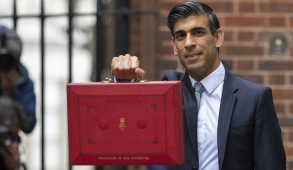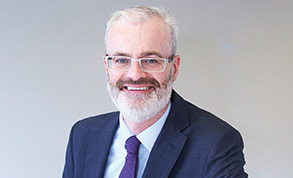Budget confirms increases in NHS revenue and capital budgets
Figures in the Autumn budget and spending review 2021 showed that this is equivalent to an average 3.3% annual real-terms increase since 2019/20 and a 4.1% increase over the three-year spending review period (2022-25).
Within this, NHS England and NHS Improvement will receive a 3.8% real-terms increase over the next three years, with its current £136.1bn budget rising to £151.8bn in 2022/23, £157.4bn in 2023/24, and £162.6bn in 2024/25.
The figures for the resource departmental expenditure limit (DEL), and the NHS England and Improvement part of that, are higher than those reported alongside the health and social care levy announcement in September. This is believed to be largely due to the inclusion of compensation for employer costs of the new levy, which were kept separate in the earlier figures.
‘The new health and social care levy, along with an increase to the rates of dividend tax, will raise around £13bn per year for spending on health and social care across the UK,’ the Treasury said. ‘This enables significant further funding for the NHS, for the government’s reforms to social care, public health and prevention programmes, and investment in training the workforce of the future.
The capital DEL has also been increased, with this year’s £9.4bn budget rising to £10.6bn next year, £10.4bn in 2023/24 and £11.2bn in the final year of the settlement. Again, this equates to 3.8% average annual real-terms growth. The government had already announced earlier this week that the NHS would receive £5.9bn in capital funding to tackle waiting lists and improve digital technology.
Mr Sunak (pictured) described the health capital budget as ‘the largest since 2010’. However, there are concerns over whether the capital increases are enough to meet demands and make up for years of capital funding shortages. The government has committed to build 40 new hospitals and upgrade 70 others. And there are significant capital demands outside of these major building projects.
‘Investment in NHS facilities, buildings and equipment has seen a much-needed rise to over £10bn a year across the next three years,’ said Nuffield Trust chief executive Nigel Edwards. ‘But the ambition of increasing the number of scans, operations and patients that can be seen, on top of upgrading hospitals, increased construction costs and repairing £9.2bn worth of urgent maintenance after decades of raided capital budgets will place a heavy draw on these funds.’
The Budget confirmed that £4.2bn over the spending review period would enable progress with the hospital building and upgrade programme. A further £2.3bn would help establish at least 100 community diagnostic centres across England, while £2.1bn would be channelled into digital technology. Some £1.5bn is earmarked for new surgical hubs, while £300m will complete the replacement of mental health dormitories with single rooms.
Education and training budgets are another area where budgets have been set on annual basis in recent years, with longer-term settlements delayed first by the 2019 general election and then by the Covid pandemic. Mr Sunak recommitted to a ‘bigger, better-trained workforce, with 50,000 more nurses and 50 million more primary care appointments’.
However, NHS Providers deputy chief executive Saffron Cordery said that trust leaders would be frustrated by the lack of a confirmed multi-year increase in Health Education England’s NHS education and training budget. ‘Workforce shortages and the resulting unsustainable workload on existing NHS staff are currently the health service’s biggest problem,’ she said. ‘They can only be tackled with a robust long-term workforce plan and increased longer term investment in workforce expansion, education and training, none of which are currently in place.’
Danny Mortimer (pictured), deputy chief executive of the NHS Confederation welcomed the increases in spending but warned there was no quick fix to some of the problems the NHS was facing. And he added that local systems were best placed to decide how to make best use of funding.
‘Decision-makers across Whitehall have a duty to ensure that bureaucracy does not become the enemy of this investment by allocating it to health and care systems without delay and giving them the freedom to determine how it should be spent to benefit their local communities,’ he said.
There were also concerns that social care was once again being treated as the poor relation to the NHS, with funds allocated from the health and social care levy insufficient to fund reforms.
‘Increases of 3% across all local government services are welcome, but they are not enough to address the disastrous situation in social care,’ said the Nuffield Trust’s Mr Edwards. ‘The sector will face a stark choice between trying to improve access to care and support for people, or simply trying to stabilise the system in which care providers are on their knees hampered by a devastating shortage of staff.’
Picture credit: www.flickr.com/photos/hmtreasury/
Related content
We are excited to bring you a fun packed Eastern Branch Conference in 2025 over three days.
This event is for those that will benefit from an overview of costing in the NHS or those new to costing and will cover why we cost and the processes.